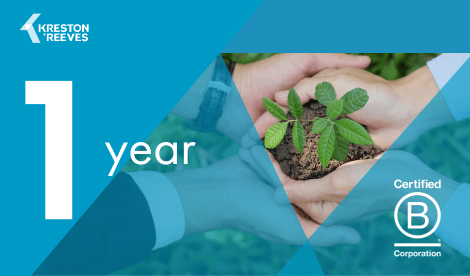Top 10 VAT issues to look out for when growing your business
Whether you have already embarked on an ambitious venture and are growing quickly, or are about to set sail, VAT needs to be given a high priority. There are many pitfalls that can be encountered and these need to be managed.
Here are our top 10 VAT issues that need to be understood and managed.
1 What, to who and where am I selling?
VAT basics are crucial and where most errors are found. It is key to understand and categorise what you are selling, who is buying and where they are. Things to consider include:
- Are you selling goods or services?
- Is the customer an individual or a business?
- For goods, where are they moving from and to?
- For services, where is your customer located?
- Does the supply attract VAT?
- Are you supplying one item or a package?
For those just starting out, getting to grips with the basics will allow you to determine if you have to register for VAT. The current threshold is £85,000, although it is important to recognise that this registration threshold is breached not just by sales but on the value of most services received from outside the UK. Exempt and outside the scope of UK VAT sales are not included.
As a default, most goods and services when supplied in the UK attract VAT at the standard rate (currently 20%). When considering trade within the UK, there are a number of VAT reliefs available, but these are quite tightly defined and often need careful analysis. Examples include:
- Food, books, newspapers and children’s clothing (zero rated).
- Finance, healthcare and housing services (exempt).
However, exemption, unlike zero-rating, has an impact on the recovery of related VAT on expenditure. In addition, the treatment of sales can depend on the type of entity making the sale and whether the sales are to individuals or businesses.
If you are selling abroad this creates another level of uncertainty. You will need to consider whether your customer is an individual or in business and the place of supply?
The general rule for (business to business) cross border services is that the place of supply is where the recipient is located and therefore outside the scope of UK VAT, but the customer is required to self-account for the VAT in its country. However, there are exceptions, such as services relating to a UK property.
2 Pricing
VAT represents a 20% additional charge for some customers, and not just individuals. VAT is often a cost for those that have exempt sales or undertake activities which are freely given or not in ‘business’, such as charities, banks, insurance companies and property companies.
To remain competitive and not to reduce your profit margin unnecessarily, you should consider at the outset of a new service or product line the reliefs available and be clear about your pricing thereon.
Care should also be taken when advertising prices and when agreeing on contracts to ensure that they provide for the addition of VAT even if you do not think your service is, at that time, subject to VAT. The ability to go back and recover VAT undercharged (from business customers) in error at a later date is essential in mitigating larger exposures.
3 Not charging VAT on all sales?
Where VAT is not added to sales or other income this creates a potential exposure and as such a reasonable, cautious, approach should be taken in deciding whether to charge VAT. As the supplier, any exposure will be yours. Your customer may encourage you not to charge VAT if it represents a cost to it, but this may not be correct and it may be necessary to obtain a view from your accountant or better still a VAT specialist.
If VAT should have been charged, HMRC will require VAT to be paid and this can potentially be backdated for up to 20 years. Unless your customers are all still in existence, registered for and able to recover all of their VAT, inaccuracies in establishing the correct treatment of income streams may be significant.
4 Claiming VAT on expenditure
Most businesses can recover VAT that they incur, however some VAT is never recoverable. If you make exempt supplies VAT is not always recoverable.
VAT incurred on expenditure may not be recovered quickly, leading to a cash flow disadvantage. Prompt recording of invoices can assist with this.
Businesses must restrict VAT on business entertaining and (partly) on car hire, but larger businesses are, in my experience, more conservative in how they approach VAT recovery on staff expenses, particularly staff entertainment. Expense processes should be reviewed to ensure maximum recovery.
Lastly, if you do not pay a supplier invoice within six months of the payment due date the VAT has to be repaid to HMRC.
5 International trade
Subject to any changes as a result of Brexit the following issues need to be considered:
- Do you need to register overseas? If you sell items to individuals or consumers from the UK or if you (or goods owned by you) are physically present in a different country you may be required to register.
- Do you trade through an online platform?
- Do not assume that the rules in the UK are the same as in each EU country
- Is the Duty tariff classification on imported goods into the UK correct (possibly leading to Duty overpayments)?
- Do you have adequate export evidence which is essential for zero-rating goods moving outside the EU?
- Have you completed statistical declarations such as EC Sales Lists for goods and services?
6 Structure of business
The structure of your business may well change as it grows. The VAT position of new companies needs to be considered particularly with holding companies. Intra-group supplies can create VAT issues and VAT grouping may need to be considered.
Expansion and moving a business to larger premises can have VAT implications. Significant VAT may be incurred on property and it is important to seek specialist advice as the complexity of the rules can create scope for error.
7 Compliance – VAT returns
There are a number of schemes which can be used to simplify VAT return reporting and the payment of VAT. For example:
- Cash accounting can be used if turnover is below £1.35million. VAT is only paid over to HMRC when money is received from customers, assisting cashflow in the early stages.
- Annual accounting allows VAT returns to be submitted annually.
- The flat rate scheme is useful for small businesses in avoiding the need to list and calculate VAT to be recovered.
Instead, a set percentage is applied to total income received reducing administration in the early years.
If you are growing rapidly, where a business’s net yearly payments of VAT to HMRC exceed £2.3million, Payments on Account are necessary. This requires two monthly estimated payments to HMRC followed by a balancing payment at quarter end when the VAT return is filed. This is closely monitored by HMRC and there is more scope for surcharges, unless sufficient resource and controls over the system are employed.
Finally, Making Tax Digital (MTD) requires a mention. The legal obligation to digitally link VAT return information through to HMRC’s system with compatible accounting software gets closer and closer. This will be live in April 2019. Whilst initially businesses will only have to ensure compatibility in filing returns digitally, they will also have more stretching obligations to adhere to from April 2020. This will include digital links between spreadsheets and companies/divisions within a group (or VAT group). This should be embedded in any VAT return process.
8 Managing risk – system and controls to avoid penalties
VAT accounting procedures and controls do not always keep up with the rate of growth of the business and, as HMRC becomes more interested in the business, the possibility of larger compliance errors increases and inherent inaccuracies can surface.
Controls over the systems may well be missing and the exposure to HMRC assessments and penalties can be more acute for medium-size businesses.
Reviews by VAT specialists, additional staff, or outsourcing of reporting are all options which could be considered.
9 Dealing with HMRC
Routine VAT audits by HMRC do not usually require VAT specialist assistance. However, there are occasions when a degree of sensitivity in how sales and activities are described is needed from a VAT perspective. VAT is, after all, an inherently interpretive tax as demonstrated by so many court decisions since its inception in 1973. If you are concerned about any issue a VAT specialist should be consulted before entering into negotiations with officers. This ensures that technical matters are explained in the right way reducing the amount of follow up work and aggravation for all parties concerned.
It is also advisable for all HMRC decisions to be reviewed as these may not be right and may have wider implications for the business.
10 Exits, sales of business
The time may inevitably come when you are disposing of properties, acquiring new ones or have achieved what you want from your business and are considering selling.
These issues can lead to significant VAT exposures unless handled carefully and specialist advice should always be sought on non-standard transactions.
We are conducting a nationwide research project where we will explore how UK businesses grow, the barriers to growth they encounter and where they are looking to expand. If you would like to sign up to receive a copy of the report and our Going for Growth updates, please select the ‘Going for Growth updates’ option on our sign up form here.
Share this article
Subscribe to our newsletters
Our complimentary newsletters and event invitations are designed to provide you with regular updates, insight and guidance.
You can unsubscribe from our email communications at any time by emailing [email protected] or by clicking the 'unsubscribe' link found on all our email newsletters and event invitations.
This site is protected by reCAPTCHA and the Google Privacy Policy and Terms of Service apply.












